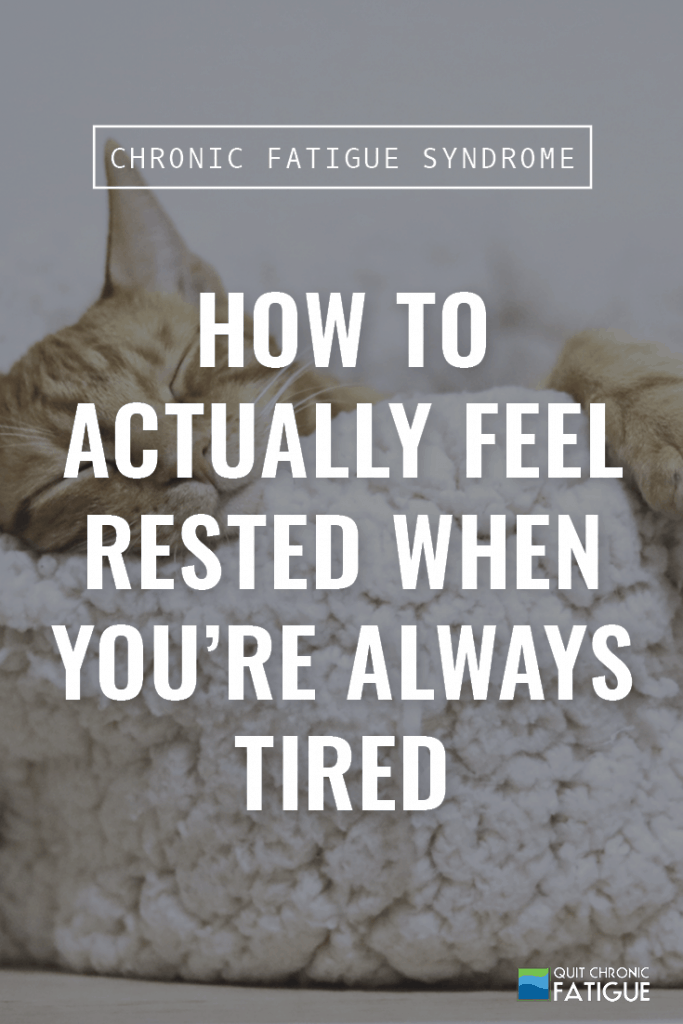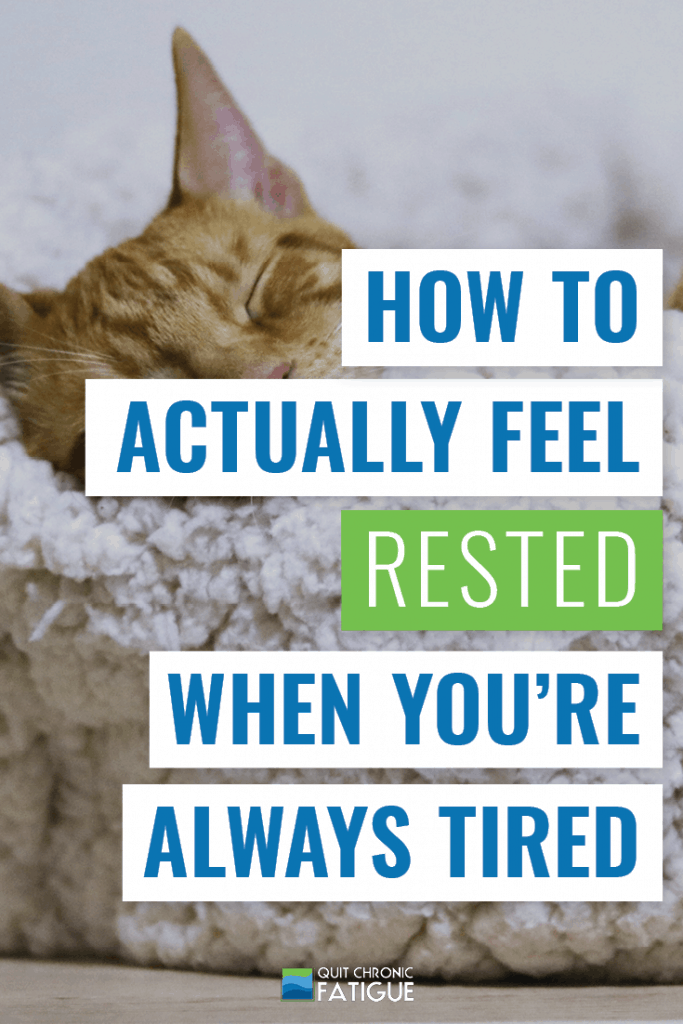Adrenal and chronic fatigue means you’re always tired but deprived of the deep healing rest your body so desperately needs. Figuring out how you can encourage that restful sleep is an essential part of coping with your fatigue.
By building habits, especially in the evening, that encourages your body and mind to relax and unwind, you can bring on deeper sleep and wake up feeling rested.

Why Is It Important to Relax When Coping with Fatigue?
When you’re always tired, there are impacts on your mental and physical health (not to mention how you feel each day). Here are some of the reasons it’s so important to relax, even if you’re feeling tired a lot.
- A lack of rest can cause your memory and learning functions to be impaired in the brain itself, which can make focusing on tasks (and remembering what you’ve worked on later) difficult.
- Misfiring neurotransmitters can cause mood swings and make it impossible to determine what things are and are not necessary.
- Physical activities have become more difficult.
- Without rest, your immune system gets weaker, making you more prone to illnesses.
- You may find dark bags under your eyes, and your skin will lose its glow. Prolonged lack of sleep can even lead to you showing premature signs of aging as your body cannot process toxins in your sleep.
Related: 5 Strategies for Living with Chronic Fatigue Every Day
How to Relax When You’re Always Tired
Relaxing is essential to feeling rested. How can you take control of your chronic fatigue syndrome or adrenal fatigue? Here are some of the best ways to feel rested, even if you’re always tired.
Take a Warm Shower or Bath
Take a warm shower or bath to unwind and relax, especially with the winter months approaching. The warm water will help boost your blood circulation and relieve any tightness that’s lingering in your muscles.
For a little extra relaxation, add some Epsom salts (these are some of our favorites) or a couple of drops of your favorite calming essential oil. Adding one (or both!) or these to your bathtime routine can help regulate your nervous system and reduce the toxins in your body.
Establish a Consistent and Mindful Bedtime Routine
Paradoxically, fatigue can make it harder to sleep, and without enough sleep, your body can’t repair itself. You can create a positive sleep environment for yourself by creating a mindful bedtime routine to help ease you into slumber. Try incorporating these tips into your evening routine.
Step away from the screen
As tempting as it may be to try and lull yourself to sleep with your favorite comfort show or by scrolling through your social media feeds, the blue light from your digital tech inhibits your melatonin production and confuses your body’s natural sense of time.
By turning off all of your devices an hour before you go to bed and keeping your room as a tech-free sleep sanctuary, you may find it easier to snooze.
Enjoy your favorite relaxing activities
Suppose you’ve got an hour to unwind without your devices. This is an excellent time for soothing and self-care activities. Choose something you enjoy, whether it’s reading a book, listening to your favorite chilled out tunes, or meditating to wind down gently.
Set yourself up for success
Make your bedroom the perfect sleep zone. Ensure your bed is cozy, and your room is cool (60-68 is the sweet spot for most people). Pick up some heavy curtains, and, if you struggle with ambient noise, try a white noise machine. You’re building your perfect sleep paradise.
Change Up Your Diet to Help Energize Yourself
You will be amazed at what a few changes in your diet can do to improve your energy. If you’re eating a nutrient-poor diet, you aren’t getting what your body needs to sustain itself in good health. The best part is that there are small, simple changes you can make that can dramatically impact your health.
- Instead of coffee as your morning wake-up buddy, try matcha green tea and avoid drinking any caffeinated beverages within six hours of your bedtime.
- If you’re snacking on carbs, add a healthy fat or protein to it. Carb-only snacks can cause your blood sugar to crash, making you want to eat more, and keeping you from getting a good night’s sleep.
- Leafy veggies are your best friend. They’re full of fiber and will help you feel fuller longer. Try to eat at least 25 grams per day.
- Throw out your partially-hydrogenated, omega-6 rich oils in favor of healthier omega-3 oils like flax, olive, and nut oils.
- Sugar lurks in unexpected places. Swap out sweet sugary yogurts and ice creams with their low-sugar counterparts. Trade your sodas for sparkling water and low-sugar juice mix.
- Make sure you’re getting all the vitamins and minerals you need. Consulting a doctor can help with this step. Lacking any of the essential vitamins and minerals can lead to fatigue, but all of them can be found naturally in the foods you eat.
Focus on Breathing and Guided Meditation
If you struggle to sleep because you can’t turn your brain off, guided meditations and breathing exercises could be just what you need.
Slowing down your breathing makes you feel less stressed and more relaxed, leading to better sleep quality. There are so many guided meditations on YouTube that are designed to take you from wakefulness on a relaxing journey to sleep.
Adrenal and chronic fatigue doesn’t have to leave you always feeling tired. Changing your evening routine and developing relaxing evening activities can help you wake up after a night of deep sleep feeling rested and ready to take charge of your life.





